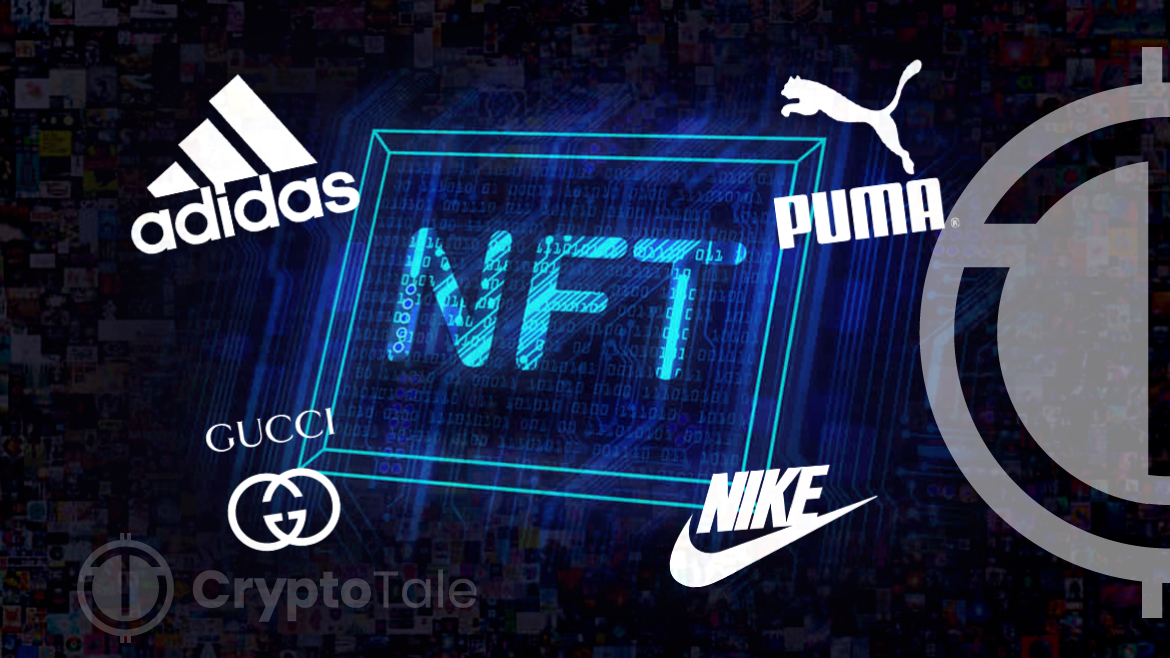
In recent years, the fusion of fashion and digital technology has taken a significant leap forward, particularly with the adoption of non-fungible tokens (NFTs) by major global apparel brands. This trend highlights a strategic shift in marketing approaches, aiming to deepen brand loyalty and create innovative customer experiences that transcend the boundaries of physical products.
Leading this digital foray, Adidas has established itself as a frontrunner with an impressive portfolio of 12 NFT collections. The German sportswear giant ventured into this new domain with its inaugural “Into the Metaverse” NFT collection in late 2021. Adidas’ journey in the NFT space is noteworthy for its blend of solo initiatives and collaborations, including partnerships with brands like Bape and Bugatti. The brand has also launched an internal web3 team, Three Stripes Studio, underscoring its commitment to this new digital frontier.
Following closely, Nike has emerged as another major player in the fashion NFT realm, boasting 9 NFT collections to date. The American sportswear titan made waves in the industry by acquiring the web3 studio RTFKT, known for its avant-garde designs and Clone X profile picture NFTs. Nike has since expanded its digital offerings with the creation of.SWOOSH, a platform managed by Nike Virtual Studios, showcases unique sneaker NFT collections and identity-focused digital assets.
As of January 15, 2024, 21 of the top 50 fashion brands globally have delved into NFTs, representing just under half (42%) of these leading brands. This statistic is particularly intriguing, considering that 9 brands have launched only a single NFT collection, and 6 have introduced two collections each. This suggests a tentative approach by many in the industry, viewing NFTs more as experimental ventures rather than core components of their marketing strategies.
The sportswear sector is at the forefront of this NFT integration, with Puma ranking third in the fashion NFT domain. Puma’s approach mirrors its peers, combining individual releases with collaborative projects, such as a redeemable sneaker collection associated with the Gutter Cat Gang and basketball icon LaMelo Ball.
Luxury fashion brands, while slower to adopt NFTs, are making notable strides. Gucci, for instance, has embraced a multifaceted approach to web3, involving collaborative collections like the 10KTF Gucci Grail, NFT artwork, and Sandbox avatar NFTs. Yves Saint Laurent has also ventured into digital art, focusing on NFTs linked to its beauty line. Luxury brands like Prada and Tiffany & Co have made their mark with unique NFT initiatives, such as Prada’s ongoing Timecapsule NFTs and Tiffany & Co’s high-profile CryptoPunks collaboration.
The application of NFTs in the fashion industry is diverse and innovative. Adidas, for instance, introduced its 2022 Virtual Gear collection, allowing users to personalize their digital avatars with exclusive collectibles, enhancing the expression of virtual identities. Similarly, Nike’s.SWOOSH ID and Louis Vuitton’s VIA Treasure Trunks are examples of how fashion brands leverage NFTs to offer customers novel, gated experiences.
On a broader scale, this trend of incorporating NFTs signifies a pivotal moment in the fashion industry’s evolution. It’s just about digital collectibles and reshaping the relationship between brands and consumers, offering unique experiences that blur the lines between the virtual and the real world.
Share: